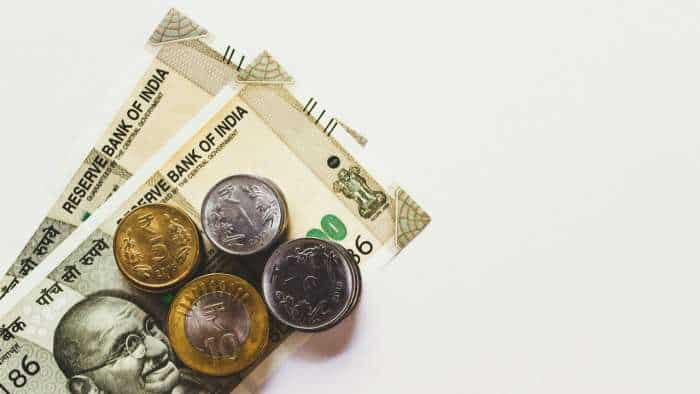Budget 2025: The Legacy of Sir C.D. Deshmukh – The first Indian RBI Governor turned Finance Minister
Discover the legacy of Sir C.D. Deshmukh, India’s first RBI Governor and Finance Minister, who presented seven Union Budgets, shaped economic policies, and contributed to academia as UGC Chairman and Delhi University Vice Chancellor.
)
As the countdown begins for the Union Budget 2025, to be presented on February 1, 2025, anticipation runs high. This budget marks the second general budget under the third Modi-led government and the eighth presentation by Finance Minister Nirmala Sitharaman. While the role of a Finance Minister is pivotal in shaping the country's financial landscape, how many of us know about a Finance Minister who also held the esteemed position of Governor of the Reserve Bank of India (RBI)? Let’s delve into the fascinating story of Sir Chintaman Dwarkanath Deshmukh, aka Sir C.D. Deshmukh.
Who as Sir C.D. Deshmukh?
Sir Chintaman Dwarkanath Deshmukh was the 3rd Finance Minister of independent India and the first Indian to serve as the Governor of the Reserve Bank of India. His career was marked by a series of firsts, reflecting his profound impact on India's financial and administrative history. Appointed by the British Raj, Deshmukh served as RBI Governor from August 11, 1943 to June 30, 1949. For his remarkable contributions, he was knighted and awarded the title of "Sir."
From Deputy Governor to India's First Indian RBI Governor
C.D. Deshmukh began his journey in the Reserve Bank of India as Deputy Governor and later assumed the position of Governor. During his tenure, he represented India at the Bretton Woods Conference in 1944, a pivotal event that led to the creation of the World Bank and the International Monetary Fund (IMF).
He also oversaw:
- India's transition to independence in 1947.
- The complex partition of financial assets and liabilities between India and Pakistan.
- The nationalisation of the RBI in 1949, transforming it into a state-owned institution.
- The Finance Minister Who Presented the Budget Seven Times
In 1950, C.D. Deshmukh joined Pandit Nehru's cabinet as Finance Minister and served until 1956. During his tenure, he presented the Union Budget seven times, a record that places him alongside Yashwantrao Chavan and Yashwant Sinha.
Other notable records include:
- Morarji Desai: 10 budgets (8 annual and 2 interim)
- P. Chidambaram: 9 budgets
- Pranab Mukherjee: 8 budgets
Deshmukh's financial policies played a crucial role in stabilising India's economy during its formative years post-independence.
A legacy beyond the Finance Ministry
Deshmukh resigned as Finance Minister during the Samyukta Maharashtra Movement but continued contributing to the nation in various capacities:
Chairman of the University Grants Commission (UGC) (1956–1961): He established the India International Centre in 1959.
Vice Chancellor of Delhi University (1962–1967): Strengthened academic excellence in the capital.
In 1975, he was honored with the Padma Vibhushan, one of India's highest civilian awards.
A leader who shaped India's financial future
Sir C.D. Deshmukh’s journey from an esteemed civil servant to a visionary policymaker underscores his significant role in India's financial and educational sectors. As we await the Union Budget 2025, his legacy reminds us of the profound impact a Finance Minister can have on a nation's progress.
Get Latest Business News, Stock Market Updates and Videos; Check your tax outgo through Income Tax Calculator and save money through our Personal Finance coverage. Check Business Breaking News Live on Zee Business Twitter and Facebook. Subscribe on YouTube.
RECOMMENDED STORIES

Latest SBI Senior Citizens FD Rates: What will you get on maturity if you invest Rs 9,89,898, Rs 8,78,787, and Rs 6,56,565 in Amrit Vrishti, 1-, 3-, and 5-year FDs?

Katra-Srinagar Vande Bharat Train: Northern Railway announces train timings; check fare, route and other key details

Power of Rs 15,000 SIP: How long it will take to achieve Rs 7 crore corpus? See calculations to know
06:15 PM IST








 GNPA of PSBs declines to 3.12% in September from peak of 14.58% in March 2018: Finance Ministry
GNPA of PSBs declines to 3.12% in September from peak of 14.58% in March 2018: Finance Ministry  Insurance Amendment Bill proposing 100% FDI unlikely in winter session
Insurance Amendment Bill proposing 100% FDI unlikely in winter session Finance Ministry proposes to raise FDI in insurance to 100%
Finance Ministry proposes to raise FDI in insurance to 100%  Finance Ministry to review efficacy of windfall tax on crude oil and fuel exports
Finance Ministry to review efficacy of windfall tax on crude oil and fuel exports  Inflation to ease, economic growth to accelerate in coming months: Finance Ministry
Inflation to ease, economic growth to accelerate in coming months: Finance Ministry